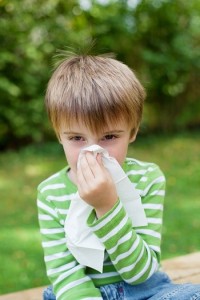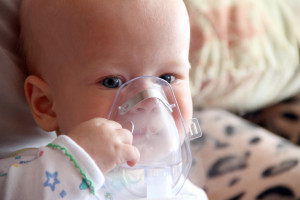In 2014, several headlines swept the nation about a disease called Enterovirus (EV-D68):
“Mysterious Virus Sweeping the Country!”
“Rare Virus Hospitalizes Hundreds of Children!”
“CDC Warns Of Fast-Spreading Enterovirus Afflicting Children.”
Since 2014, cases of Enterovirus have not reached alarming levels. According to the CDC, Enterovirus is always present in our community. But as all NICU parents know, it’s better to prepare than to panic.
Learn about protecting your family and make a plan for this cold and flu season, especially if your child has a respiratory condition like chronic lung disease (CLD) or asthma.
Here are 5 Things You Need to Know about Enterovirus (EV-D68):
1. WHAT IS ENTEROVIRUS?
Like rhinoviruses (HRV), respiratory syncytial virus (RSV), and more than 200 other viruses, Enterovirus 68 is one of the many viruses we are talking about when we talk about the “common cold.” The symptoms include coughing, sneezing, and a runny nose – and sometimes fever. If you get sick it’s unlikely that you’ll be certain which of these respiratory viruses caused your illness. Unless there is a reason to isolate and identify the specific virus you have, you will probably never know.
Most people who catch a virus like Enterovirus will feel better in a 7 – 10 days, but they need to avoid other people while they’re sick.
Most hospitalizations were of children with chronic lung conditions. If your child has a history of respiratory problems, make sure that you have their medications ready and available.
2. HOW IS IT SPREAD?
Enterovirus 68 (EV-D68) is spread like other respiratory viruses. You can be infected from direct contact with a sick person or from touching things that an infected person has coughed on, sneezed on, or touched. The virus can live for hours on contaminated surfaces, so it’s important to safely clean, disinfect, and sanitize your things regularly, especially this time of year.
You should also be extra careful when changing dirty diapers or soiled clothes when your children are sick since Enterovirus might be present.
3. WHO IS AT RISK?
Infants and young children are at increased risk for severe complications from respiratory viruses. Their immune systems are not as good at fighting infections as they will be when they’re older. Your child is at an increased risk from Enterovirus – or the flu – if they fall into these risk categories:
- Babies who are younger than 6 months at the start of cold, flu, & RSV season
- Infants who are born preterm and <35 weeks gestation whose lungs had to develop early because of their preterm births
- Infants and children younger than 2 years who have been treated for chronic lung disease within 6 months of the start of the cold season
- Babies who have either congenital abnormalities of the airway or neuromuscular disease that affect lung development and function
- Babies with cyanotic or complicated congenital heart disease
- Anyone with a weakened immune system
Other risk factors include:
- Being less than 3 months old
- Having school-age siblings
- Being a multiple
- Having a low birthweight (<2500 g)
- Having a family history of asthma
- Living in crowded conditions
- Attending day care (defined as being cared for along with two or more unrelated children)
- Exposure to smoking, smokers, or their clothing and belongings
- Exposure to environmental air pollutants (e.g. dust, mold, fireplace smoke)
4. HOW IS ENTEROVIRUS INFECTION TREATED?
Unfortunately, there is no sure cure for a cold. Instead, the goal is to relieve the worst of the symptoms. However, children with respiratory issues like chronic lung disease or asthma need extra care and attention. If your child has an asthma attack, is wheezing, or is having problems breathing go to the emergency room. Don’t wait.
Less severe cases of infection may be treated at home. Fluids are often recommended to prevent dehydration. Your child may receive medicine to reduce their fever or prescription medications delivered via a nebulizer to help them breathe. A bulb syringe can be used to suction mucus from nasal airways in infants. Or you can try one of these.
5. HOW DO WE PROTECT OUR FAMILY?
The best way to avoid severe complications from respiratory viruses like Enterovirus is to never get infected in the first place. And the best way to avoid getting sick is to WASH YOUR HANDS OFTEN. Handwashing is the most effective way to stop the spread of germs and viruses.
The American Academy of Pediatrics offers this great advice:
- Wash hands often with soap and water for 20 seconds.
- Avoid touching, eyes, nose, and mouth with unwashed hands.
- Avoid kissing, hugging, and sharing cups or eating utensils with people who are sick..
- Disinfect frequently touched surfaces, such as toys and doorknobs, especially if someone is sick.
- Stay home when feeling sick, and talk with your health care providers.
For further information:
- Read about about avoiding germs & viruses and print a copy to share.
- Learn about flu prevention & vaccination. To minimize confusion with influenza, and to protect against the flu virus, the American Academy of Pediatrics recommends all children ages six months and older be vaccinated against influenza at the earliest possible time. Adults too!
- Find the facts about vaccination and immunization and preventable illnesses.



